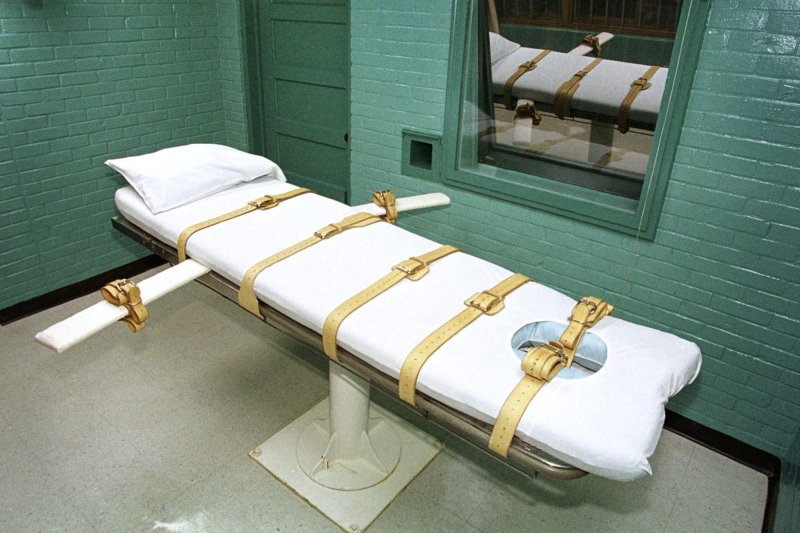The ruling halts federal executions by freezing capital punishment scheduled for four death row inmates. File Photo by Paul Buck/EPA
Nov. 21 (UPI) -- A federal judge ruled late Wednesday to impose a moratorium on all federal executions, freezing an attempt by the Trump administration to resume the death penalty at the national level.
U.S. District Court Judge Tanya Chutkan blocked four scheduled federal executions that were intended to initiate the administration's plan to resume capital punishment in federal cases. U.S. Attorney General William Barr announced in July the department would resume federal executions, saying it's needed to deliver justice for the United States' "worst criminals."
Barr proposed using a single drug, pentobarbital, rather than the common three-drug cocktail used in state executions. Chutkan said in her ruling developing such a uniformed method was "very likely" beyond his authority, and that death row inmates would likely win appeals by arguing the protocol violates federal law because it varies from state law.
Under a 1994 statute, all federal executions must be carried out in a "manner prescribed by the law of the state in which the sentence is imposed." Government attorneys had argued the drugs used in the protocol are irrelevant, since the method of execution -- lethal injection -- is the same. Chutkan disagreed.
"Requiring the federal government to follow more than just the state's method of execution is consistent with other sections of the statute and with historical practices," she wrote in her decision. "For all these reasons, this court finds that the [Federal Death Penalty Act] does not authorize the creation of a single implementation procedure for federal executions.
"There is no statute that gives the [Bureau of Prisons] or [Justice Department] the authority to establish a single implementation procedure for all federal executions."
Chutkan noted the federal government has followed some version of this legal requirement since 1937, and said failure to block the executions will result in "irreparable harm" for at least one of the death row inmates.
"The likely harm that [inmates] would suffer if this court does not grant injunctive relief far outweighs any potential harm to the [Justice Department]," she wrote.
The U.S. government has executed only three people in the last 50 years -- Oklahoma City bomber Timothy McVeigh and killer Juan Raul Garza in June 2001 and rapist and killer Louis Jones Jr. in 2003. There have been no federal executions since.
The 9th U.S. Circuit Court of Appeals ruled last month to block another federal execution.
In court briefs, the Justice Department argued it would be unreasonable for force the federal government to keep every single drug used by death penalty states to comply with federal law. Two of the nation's most aggressive death penalty states, Texas and Missouri, have already moved to a single-drug protocol because obtaining all three drugs for the procedure has become increasingly difficult.
Chutkan's ruling shelves scheduled federal executions for Daniel Lewis Lee, Wesley Ira Purkey, Alfred Bourgeois and Dustin Lee Honken. Officials had planned to begin their executions next month.
Lee was convicted of murder and robbery in Arkansas in 1999 for killing a family of three. Purkey was convicted in 2003 of the rape and murder of a teenage girl. Bourgeois was convicted in Texas in the death of his toddler daughter and Honken killed five people in Iowa in 2004.















